
-
 WWF blasts Sweden, Finland over logging practices
WWF blasts Sweden, Finland over logging practices
-
How things stand in China-US trade tensions with Trump 2.0

-
 Most Asian markets rise after Wall Street's AI-fuelled rally
Most Asian markets rise after Wall Street's AI-fuelled rally
-
Colman to kick off Sundance as film world reels from LA fires
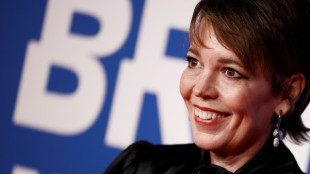
-
 Chief US diplomat vows 'unwavering support' for Israel
Chief US diplomat vows 'unwavering support' for Israel
-
Fire-hit Hollywood awaits Oscar nominees, with 'Emilia Perez' in front

-
 Nearly 200 Bangkok schools close over air pollution
Nearly 200 Bangkok schools close over air pollution
-
Daring attack pays off for Spain's Romo in Tour Down Under win

-
 Napoli host arch-rivals Juventus riding wave of Scudetto enthusiasm
Napoli host arch-rivals Juventus riding wave of Scudetto enthusiasm
-
Alpine skiing: Five things about the Kitzbuehel downhill

-
 J-pop star Nakai to retire after sex misconduct allegations: media
J-pop star Nakai to retire after sex misconduct allegations: media
-
New rider in town: Somalia's first woman equestrian turns heads

-
 Melbourne doubles feud as Kichenok accuses Mladenovic of 'direct threat'
Melbourne doubles feud as Kichenok accuses Mladenovic of 'direct threat'
-
Trump to take virtual centre stage in Davos

-
 Friedrich Merz: millionaire conservative on verge of German chancellery
Friedrich Merz: millionaire conservative on verge of German chancellery
-
Trump's return darkens mood as Germany heads to elections

-
 Pochettino happy after 'amazing' USA beat Costa Rica
Pochettino happy after 'amazing' USA beat Costa Rica
-
Most Asian markets extend AI-fuelled rally

-
 Bangladesh student revolutionaries' dreams dented by joblessness
Bangladesh student revolutionaries' dreams dented by joblessness
-
S. Korea investigators recommend Yoon be charged with insurrection, abuse of power

-
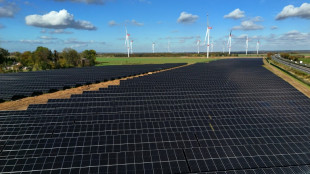 Solar power surpasses coal in EU for first time
Solar power surpasses coal in EU for first time
-
Musk, Wikipedia founder in row over how to describe 'Nazi salute'

-
 Axel Rudakubana: troubled teen whose knife rampage shocked Britain
Axel Rudakubana: troubled teen whose knife rampage shocked Britain
-
Sasaki vows to 'give best' to fire-torn LA at Dodgers unveiling

-
 UK teen faces sentencing over murders that sparked riots
UK teen faces sentencing over murders that sparked riots
-
Larry Ellison, tech's original maverick, makes Trump era return

-
 Trump push to 'drill, baby, drill' may hit industry roadblock
Trump push to 'drill, baby, drill' may hit industry roadblock
-
Instagram courts TikTok stars during turbulent times
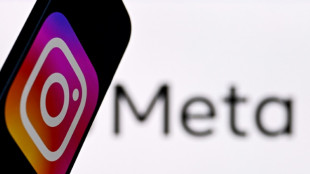
-
 Political crisis hits South Korea growth: central bank
Political crisis hits South Korea growth: central bank
-
Elephants are not people, US judges say
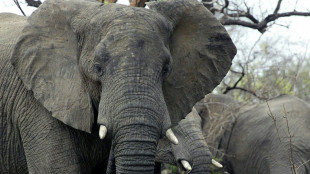
-
 Sinner aiming to be 'better, stronger' in Australian Open semi
Sinner aiming to be 'better, stronger' in Australian Open semi
-
Mass evacuations after explosive new fire erupts near Los Angeles

-
 Phoenix Motor Appoints Tony Zhou as Chief Technology Officer
Phoenix Motor Appoints Tony Zhou as Chief Technology Officer
-
Angle PLC Announces Trading Update

-
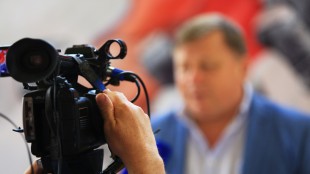 The Now Corporation (OTC:NWPN) In Conjunction With Subsidiary Green Rain Solar Inc., Launch a Visionary Video Showcasing Solar Energy Solutions
The Now Corporation (OTC:NWPN) In Conjunction With Subsidiary Green Rain Solar Inc., Launch a Visionary Video Showcasing Solar Energy Solutions
-
Guardiola concedes Man City 'could not cope' with PSG as European hopes flicker

-
 PSG push Man City to brink with stunning Champions League comeback
PSG push Man City to brink with stunning Champions League comeback
-
Arteta wants sunshine break as Arsenal move towards last 16

-
 PSG comeback floors Man City as Arsenal near Champions League last 16
PSG comeback floors Man City as Arsenal near Champions League last 16
-
Trump toughens crackdown on immigration and diversity

-
 Celtic make 'little bit of history' with Champions League progress
Celtic make 'little bit of history' with Champions League progress
-
As Trump declares 'Gulf of America,' US enters name wars
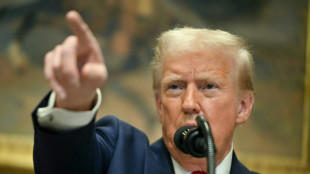
-
 Celtic make Champions League progress thanks to Young Boys own goal
Celtic make Champions League progress thanks to Young Boys own goal
-
Trump's tariff threats are 'leverage,' says informal economic advisor

-
 Trump halts refugee arrivals in crackdown
Trump halts refugee arrivals in crackdown
-
Gangs could overrun Haiti capital if aid falls short: UN chief

-
 PSG sink Man City with stunning Champions League comeback
PSG sink Man City with stunning Champions League comeback
-
Leao sinks Girona and pushes Milan into Champions League top eight

-
 Feyenoord stun toothless Bayern in Champions League
Feyenoord stun toothless Bayern in Champions League
-
Arsenal on course for last 16 after beating Dinamo


War in Ukraine offers redemption to maligned US intel community
Caught on the back foot by the Taliban's lightning takeover of Kabul last August, US intelligence services have earned a measure of redemption with Russia's invasion of Ukraine, which they predicted and detailed with impressive precision.
According to several US officials consulted by AFP, the US military understood as early as October 2021 that Russian troop movements on the border with Ukraine were not normal -- Moscow said they were conducting regular drills, but the formations on the ground did not match up.
The Pentagon voiced its concerns to the White House, and US intelligence services quickly got to work to try to learn more. Some of Joe Biden's aides doubted Russia could be planning a major assault, but the US leader took the situation seriously.
On November 2, Biden sent CIA Director Bill Burns -- a former ambassador to Russia -- to Moscow for talks with President Vladimir Putin.
Burns, who speaks Russian, let Putin know that Washington had "serious" concerns about his troop movements, CNN reported at the time.
Half a dozen colonels from the US Joint Chiefs of Staff intelligence directorate pored over information received from CIA analysts and the National Security Agency's listening services to try to determine the Russian plan of attack.
From the basements of the Pentagon, "these unsung heroes have driven the entire intelligence community," said one of those officials, on the condition of anonymity to discuss sensitive national security matters.
He added that the NSA had done "unbelievable work."
- Paths of attack -
In January, that assiduous intelligence work allowed the colonels to draw up a map that predicted with astonishing precision how Russia's military would attempt to invade Ukraine -- from the north towards Kyiv, from the east via Kharkiv and from the south through Mariupol.
Wanting above all else to prevent armed conflict, the Biden administration quickly made the decision to publicly reveal an unusual amount of classified information about Russia's preparations for war.
In early February, Pentagon spokesman John Kirby said Moscow was set to "produce a very graphic propaganda video, which would include corpses and actors that would be depicting mourners," pretending the scene was the result of a Ukrainian attack -- a pretext for invasion.
Soon after, journalists were invited to meet with senior intelligence officials who hardly ever speak to the press. Those officials said Russia was stepping up its preparations for a major military assault on Kyiv.
Reporters were shown a map with the predicted Russian troop movements. They were even given an expected date of attack: mid-February, after the conclusion of the Beijing Winter Olympics.
The scenario offered that day to the world's media was met with skepticism in Europe.
- The date -
The exact date of the attack was eventually pushed back a few days, but the Biden administration was so sure that its intelligence was correct that on the evening of February 23, Secretary of State Antony Blinken said he believed an invasion would begin before the night was over stateside.
On the morning of February 24, Russian forces invaded Ukraine.
The US intelligence community had been right all along, except for a few details.
US analysts did not predict how fiercely Ukrainians would defend their country, nor did they count on the dogged determination of Ukrainian President Volodymyr Zelensky, whose bravery has galvanized his compatriots.
According to intelligence predictions, many in the US feared Kyiv would fall within 48 hours, and that Zelensky would be quickly ousted in favor of a pro-Russian leader.
As the invasion enters its third week, the Ukrainian capital remains out of Russian hands and Zelensky earned a standing ovation from British lawmakers after he addressed them via video link.
US intelligence also worried the Ukrainian military would be quickly paralyzed by a Russian cyberattack, which did not materialize.
That's because, while Kyiv has modernized its armed forces, its Soviet-era planes have not been upgraded, and use the same communications systems as the Russian army -- meaning Moscow cannot cripple the Ukrainians without hurting their own effort.
US intelligence has estimated that war in Ukraine could have a horrific human toll, with 25,000 to 50,000 civilians killed, as many as 25,000 Ukrainian soldiers slain and up to 10,000 Russian military personnel killed.
Officials raised the possibility of between one and five million refugees, many of whom would be headed towards Poland.
Indeed, as of Wednesday, the Pentagon put the number of Russian fatalities at 2,000-4,000, and the United Nations said more than two million refugees have already left the eastern European country.
E.Flores--AT
